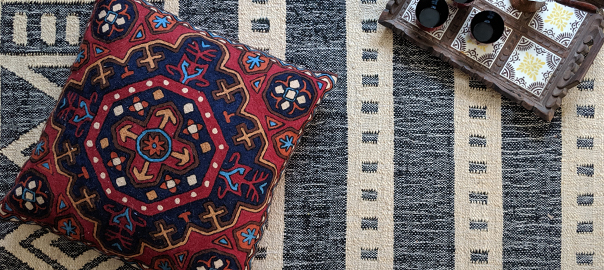It was a Wednesday morning in February when I went to visit a pair of Syrian refugee families in Beirut. Having been in the country just a few weeks, I was excited to start getting to know people from the refugee community. At the first apartment I sat down with a woman and her husband in a small but clean sitting room, furnished with nothing but floor cushions and a massive Christmas tree still set up in the corner. Over pleasantries and smiles and tiny cups of Turkish coffee, we chatted and they started to share about what was happening in their lives.
The father was out of work. A brother had died of typhoid in a refugee camp. Another relative had died in prison. Their son was being harassed at work and was nearly sexually assaulted. Another son was sick, needing medical attention they could hardly afford.
I left with a heavy heart to visit another family and over more tiny cups of Turkish coffee the stories continued. Underage marriage. Bombings. Decapitated heads. Traumatized children. Beatings. More death.
I wasn’t ready for everything I heard that day. It wasn’t just the stories themselves; it was the sheer number of stories each family told. It was just two families! How could so many stories come from just two families?
I’ve visited many more families since February, and thank God I don’t hear these kinds of things every time. But nor are these stories uncommon. I have come to see that these are the stories that surround everyone here. Every week, everywhere they look – their children, brothers, sisters, cousins, and neighbors – there’s always some new story to elicit fear. Even after escaping the war and ISIS, the stories don’t stop. With limited rights as refugees, these families continue to be abused, taken advantage of, denied wages they’ve earned, and treated with disregard by those who would prefer they just go home.
I don’t just mean to invoke pity here. When I see how much people have fought to survive, how much suffering they’ve endured and yet still they carry on, I am in awe. I’ve listened to these stories for a few months and felt the heaviness of them – these families have lived through them for eight years. But they keep waking up each morning. They keep working even without knowing whether they’ll get paid or not by an unjust boss. They keep hoping and praying the best for their children.
People here are so strong, and yet trauma like this cannot be easily covered up or shoved aside. Side effects start to show. There are health problems exacerbated by stress and poor living conditions, increased violence, and all sorts of physical, mental, and behavioral problems among children who’ve now lived most of their lives in a constant state of stress and anxiety.
I know some of the things I’ve mentioned aren’t easy to read. There are more stories I simply cannot share because they are even more graphic. The point is not to shock, but to try to explain the depth of healing needed. A refugee crisis may spring up quickly and grab the world’s attention for a moment, but it typically takes years and years till people either move back or are resettled elsewhere. That means families spend years continuing to live in traumatic circumstances, unable to heal from the trauma of what they escaped, and continuing to experience new trauma as they live in precarious circumstances. Meanwhile, a whole generation of children grows up knowing no other life but fear.
How do we pray for refugees? Of course we can pray for the most apparent needs – food, shelter, security, etc. – but we also need to pray for the deeper things. Pray for healing – wholistic healing. Pray for physical healing from the ailments that result from these circumstances. Pray for mental and emotional healing from trauma. Pray for social healing in communities and families that have been torn apart. But most of all, pray for spiritual healing, that people who have endured so much and still continue to struggle would come to know the peace and love of God through Jesus Christ. For it was He who said:
“Come to me, all you who are weary and burdened, and I will give you rest.”



thanks for sharing Chelsea, will be praying for the refugees .